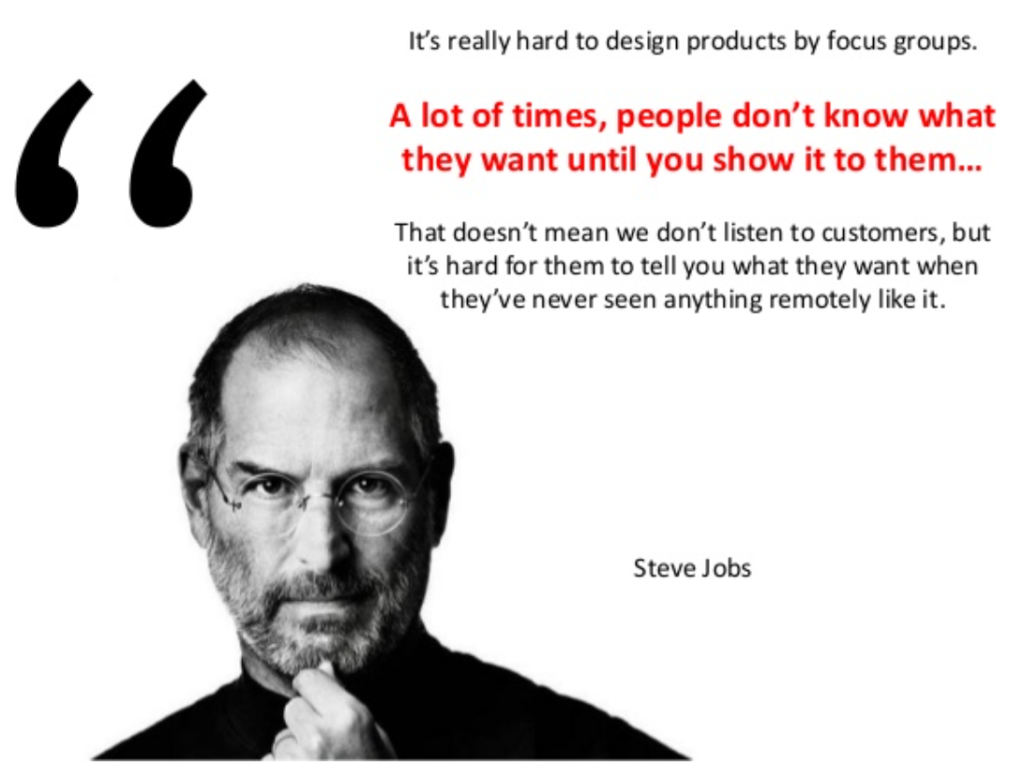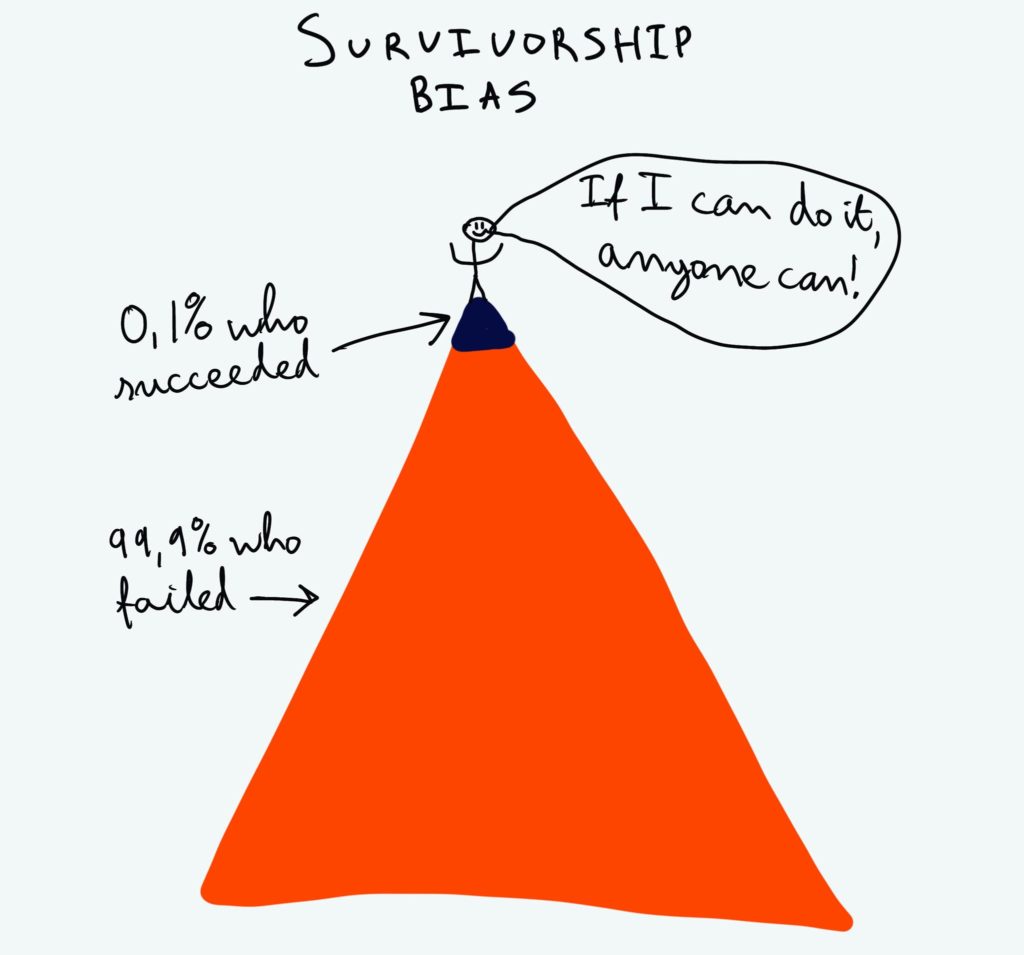Survivorship bias is a cognitive shortcut that occurs when a visible successful subgroup is mistaken as an entire group, due to the failure subgroup not being visible. The bias’ name comes from the error an individual makes when a data set only considers the “surviving” observations, without considering those which didn’t survive.
Examples
Examples of survivorship bias are noticeable in a wide range of fields, particularly in the business world. Students in business school can recall how unicorn start-ups were commonly applauded within the classroom, serving as an example of what students should strive for — an archetypal symbol of success. Even though Forbes reported that 90% of start-ups fail, entire degrees are dedicated to entrepreneurship, with dozens of students claiming that they will one day find a start-up and become successful.2
By looking at successful start-up founders, like Steve Jobs, Bill Gates, and Mark Zuckerberg, an individual could conclude that to reach their level of success, they must simply have an idea, drop out of school, and dedicate their time to their start-up.

